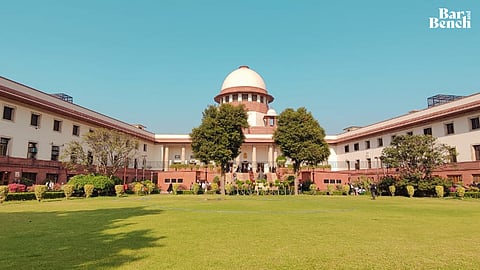
- News
- Columns
- Interviews
- Law Firms
- Apprentice Lawyer
- Legal Jobs
- हिंदी
- ಕನ್ನಡ

The Supreme Court on Friday held that the 2018 amendments to the Specific Relief Act are retrospective in its application and not prospective. [Siddamsetty Infra Projects (P) Ltd v Katta Sujatha Reddy and Ors]